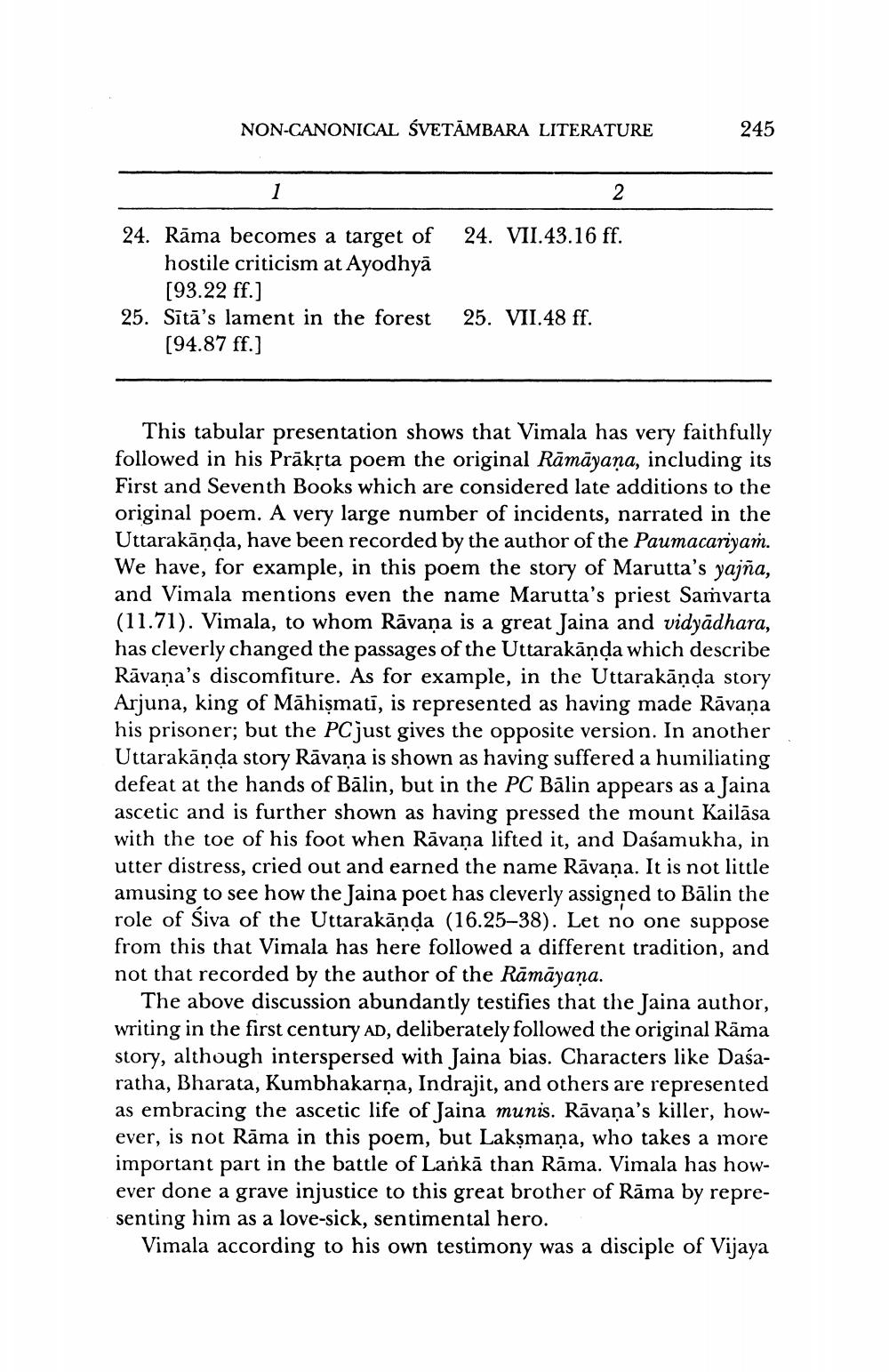________________
NON-CANONICAL SVETĀMBARA LITERATURE
245
2
24. VII.43.16 ff.
24. Rāma becomes a target of
hostile criticism at Ayodhyā
[93.22 ff.] 25. Sītā's lament in the forest
(94.87 ff.]
25. VII.48 ff.
This tabular presentation shows that Vimala has very faithfully followed in his Prākṣta poem the original Rāmāyaṇa, including its First and Seventh Books which are considered late additions to the original poem. A very large number of incidents, narrated in the Uttarakānda, have been recorded by the author of the Paumacariyam. We have, for example, in this poem the story of Marutta's yajña, and Vimala mentions even the name Marutta's priest Samvarta (11.71). Vimala, to whom Rāvana is a great Jaina and vidyādhara, has cleverly changed the passages of the Uttarakānda which describe Rāvana's discomfiture. As for example, in the Uttarakānda story Arjuna, king of Mahismati, is represented as having made Rāvana his prisoner; but the PCjust gives the opposite version. In another Uttarakānda story Rāvana is shown as having suffered a humiliating defeat at the hands of Bālin, but in the PC Bālin appears as a Jaina ascetic and is further shown as having pressed the mount Kailāsa with the toe of his foot when Rāvana lifted it, and Dasamukha, in utter distress, cried out and earned the name Rāvaņa. It is not little amusing to see how the Jaina poet has cleverly assigned to Bālin the role of Siva of the Uttarakānda (16.25-38). Let no one suppose from this that Vimala has here followed a different tradition, and not that recorded by the author of the Rāmāyaṇa.
The above discussion abundantly testifies that the Jaina auth writing in the first century AD, deliberately followed the original Rama story, although interspersed with Jaina bias. Characters like Dasaratha, Bharata, Kumbhakarna, Indrajit, and others are represented as embracing the ascetic life of Jaina munis. Rāvana's killer, however, is not Rāma in this poem, but Lakşmaņa, who takes a more important part in the battle of Lankā than Rāma. Vimala has however done a grave injustice to this great brother of Rāma by representing him as a love-sick, sentimental hero.
Vimala according to his own testimony was a disciple of Vijaya




